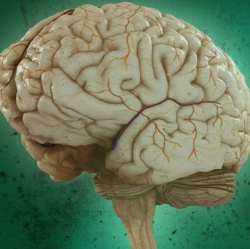
There is growing evidence that the dementia crisis may not be as bad as first feared. A study suggests the proportion of elderly people developing dementia is falling in the US, backing up similar findings in Europe. Data from 21,057 people over the age of 65 in the US showed the proportion with dementia fell from 11.6% in 2000 to 8.8% in 2012.
The findings were published in the journal JAMA Internal Medicine. There is a suggestion that higher levels of education are protecting the brain from the disease. One expert said the results were "incredibly important for the world".
Similar studies in Europe, published in the Lancet Neurology last year, suggested dementia rates had fallen in the UK and among Spanish men and had stabilised in other European countries.
Prof Kenneth Langa, who conducted the latest study at the University of Michigan, said: "Our results add to a growing body of evidence that this decline in dementia risk is a real phenomenon, and that the expected future growth in the burden of dementia may not be as extensive as once thought."
The slow decline in brain function is irreversible – there are no drugs or treatments – so finding ways of preventing the condition is hugely important.
Education has long been suspected to play a role, and the study found that while the dementia rate fell, the average time older adults had spent in school or university increased from 11.8 years in 2000 to 12.7 years in 2012.
It is possible that the mental challenge of education helps protect brain cells from dying later in life, or that once neurons start to die, education helps the rest of the brain rewire and compensate to prevent the symptoms of dementia appearing.
However, the number of people affected could still soar. The falling rate could be overwhelmed by the rising numbers of people living into old age. Despite a falling dementia rate, the disease still became the biggest killer in England and Wales last year.
There are also fewer people dying from other diseases, as well as changes to the way deaths are being recorded that move dementia up the rankings.
Hilary Evans, the chief executive of Alzheimer’s Research UK, said the latest study was a cause for "optimism" but dementia remained the "greatest medical challenge".
